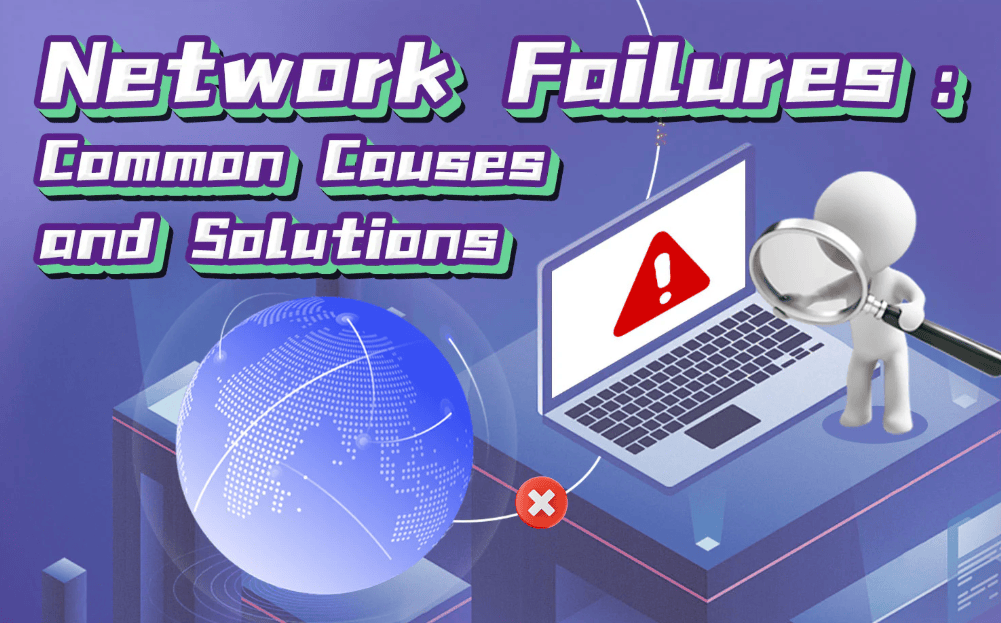
Whether it’s sending emails, browsing the web, or accessing files stored in the cloud, the network is the backbone of all online activity. However, like all technology, networks can sometimes fail unexpectedly. When that happens, it can be a major headache, causing downtime and preventing employees from getting work done. That’s where on-call IT support comes in, offering a fast, reliable solution to get your network back on track as quickly as possible.
What is On-Call IT Support?

Think of on-call IT support as a team of technology experts available whenever you need them—like an emergency response team, but for your network and computer systems.
When you run into network failures, such as a slow connection, disconnection, or complete network outage, on-call IT support is ready to help, no matter the time of day. It’s an essential service that ensures your business continues to run smoothly, even when something goes wrong with your IT infrastructure.
In simpler terms, if something breaks with your company’s technology or network, on-call IT support is there to fix it, fast.
Why Network Failures Happen
Network failures can occur for many reasons, and they can affect any size business. Some of the most common causes include:
- Hardware issues: If your routers, modems, or switches malfunction, the entire network can go down.
- Software or configuration errors: Mistakes in network settings or faulty software updates can interrupt service.
- Internet Service Provider (ISP) problems: Sometimes, the issue lies with your internet provider, not your own network.
- Cyberattacks or malware: A virus, ransomware, or hacker can disrupt the network, cause data loss, or force a system shutdown.
- Overloaded network: Too many devices trying to connect to a network can slow it down or bring it to a halt.
Any of these issues can affect productivity, revenue, and customer satisfaction. When the network isn’t working, employees can’t do their jobs effectively, and customers can’t interact with your services.
The Importance of On-Call IT Support
Let’s face it—nobody likes it when their network fails. If you can’t access files, send emails, or communicate with customers, it’s incredibly frustrating. Network downtime doesn’t just impact employees; it can harm your bottom line, as you’re losing valuable time and resources.
This is where on-call IT support steps in to prevent further damage and quickly resolve network issues. On-call IT support brings the following benefits:
- Quick Response Times:
On-call IT support is designed to respond to emergencies immediately. In the event of a network failure, waiting hours for a technician to show up can cost you valuable time. On-call IT support ensures that help is available within minutes, minimizing downtime and getting your business back on track fast. - 24/7 Availability:
Technology doesn’t follow office hours, and neither do network issues. Having on-call IT support means you have access to help no matter what time of day or night it is—whether it’s a Saturday night or during a busy workday. - Experienced Technicians:
The support team you reach out to is staffed by skilled technicians who can quickly diagnose and fix the problem. These experts have the experience to troubleshoot issues efficiently, so you don’t have to waste time trying to figure things out on your own. - Preventing Bigger Issues:
While some issues might seem small at first, if left unaddressed, they can snowball into more significant problems. On-call IT support ensures that issues are addressed before they cause larger disruptions, helping to prevent major network failures in the future.
How On-Call IT Support Works for Network Failures

When a network failure occurs, your first instinct might be to call your in-house IT team (if you have one). But sometimes, in-house teams aren’t available, or they might not have the expertise to fix complex issues right away. That’s when on-call IT support is your best bet.
Here’s how it typically works:
- Contacting Support:
When a network failure occurs, you contact the on-call IT support team via phone, email, or even chat. Many support services offer quick access through a dedicated support line. - Initial Diagnosis:
Once your IT support team picks up, they’ll start by diagnosing the issue. They may ask you a few questions to get more information and determine if they can fix the issue remotely or if someone needs to visit your office. - Remote Troubleshooting:
In many cases, the technician can resolve the problem remotely. By using remote access tools, the technician can access your network, troubleshoot settings, and make adjustments without needing to be physically present. This can include things like restarting a server, adjusting network configurations, or addressing software errors. - On-Site Support (If Needed):
If the issue can’t be solved remotely, or if there’s a hardware problem, the on-call support team will send someone to your location to fix the issue in person. On-site support ensures that all hardware is up and running again. - Ongoing Monitoring:
After the issue is resolved, the IT team may continue monitoring the system for a while to ensure that everything is stable and functioning correctly. They’ll also advise on steps you can take to prevent similar failures in the future.
What Types of Network Failures Can Be Solved by On-Call IT Support?
On-call IT support can resolve a wide variety of network failures, including:
- Lost Internet Connection: If your internet connection is down or unstable, on-call support can diagnose whether the issue is with your equipment or your ISP, and work to restore connectivity.
- Slow Network Speed: Network congestion or misconfigured settings can cause slowdowns. IT support can help speed up your network by optimizing settings or addressing any overloads.
- Firewall and Security Failures: If there’s a security breach, such as a cyberattack, on-call IT support can help isolate the threat, remove malicious software, and restore your network’s security.
- Network Configuration Issues: Improperly set up routers, switches, or firewalls can cause network disruptions. On-call IT professionals can help configure these devices correctly to ensure smooth operations.
- Hardware Failures: If a router, switch, or other network hardware breaks down, on-call support can troubleshoot the issue and either fix it remotely or dispatch someone to repair it.
The Benefits of Having On-Call IT Support for Your Business
- Minimize Downtime:
The faster a network failure is resolved, the less time your business will spend in a disrupted state. On-call IT support ensures that your network is back up and running quickly, minimizing downtime and loss of productivity. - Cost Savings:
Having on-call support reduces the need for an in-house IT team to be available around the clock. You only pay for support when you need it, which can save your business money in the long run. - Peace of Mind:
Knowing that you have an expert team available to handle urgent network issues gives you peace of mind. This allows you to focus on running your business without worrying about IT problems. - Increased Productivity:
When your network is functioning properly, your employees can work without interruption. On-call IT support helps make sure that your business stays productive, even when issues arise.
Conclusion
On-call IT support is essential for businesses that depend on their networks for day-to-day operations. Network failures are inevitable, but the impact they have on your business doesn’t have to be severe. By having on-call IT support available to address quickly and fix network issues, you can ensure minimal downtime and keep your business running smoothly. Whether it’s a slow connection, a malfunctioning device, or a full-blown outage, on-call IT support is your go-to solution to get back on track fast.
In the end, on-call IT support provides a lifeline for businesses, offering fast solutions to urgent network failures and allowing companies to focus on what they do best—growing and thriving in an increasingly connected world.
